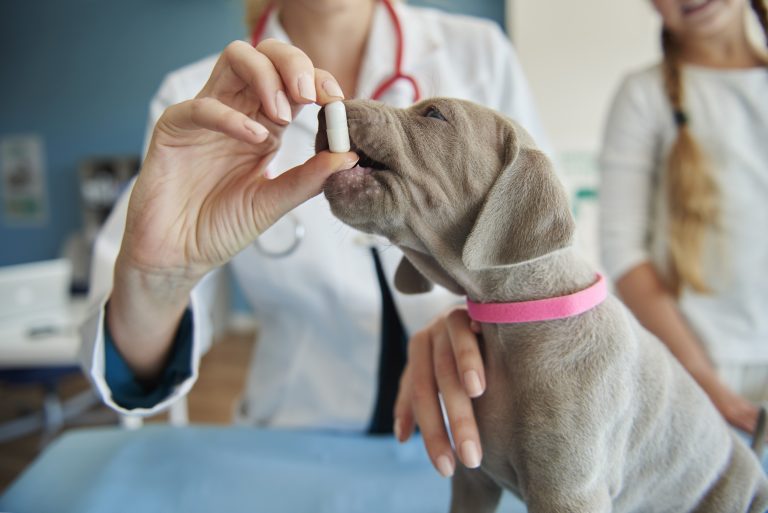The immune system of dogs is one of the fundamental pillars of their health, exerting a crucial control in maintaining balance and protecting the body against external threats.
This versatile system acts as the body’s guardian, identifying and fighting off various pathogens. Functioning as a vigilant army, the canine immune system mobilizes a variety of mechanisms, including specialized cells and chemicals, to neutralize and eliminate threats.
Its ability to quickly identify and respond to aggressors is crucial to maintaining the dog’s health and well-being, ensuring that it remains protected against disease and can recover more effectively from infections or ailments. Thus, the correct functioning and support of the dog’s immune system become essential elements for a healthy and active life of the pet.
CONTENT:
Structure of the Immune System of Dogs
The structure of the immune system of dogs is a complex and sophisticated mechanism, divided into two main components that work together to protect the body against pathogens and disease.
-
The Innate Immune System
This system is the first line of defense against infections and pathogens entering the dog’s body. It includes a number of non-specific defense mechanisms that are activated as soon as the body detects a threat. Components of the innate immune system include:
– Physical Barriers:
Skin: It is the first physical barrier against the entry of pathogens into the body. Its main role is to prevent the access of microorganisms to internal tissues.
Mucous membranes: These cover the internal surfaces of the body, such as the respiratory and gastrointestinal tracts, and serve as another protective barrier against the entry of pathogens.
– Innate Immune Cells:
Macrophages: They are immune cells specialized in phagocytosis, that is, engulfing and destroying pathogens.
Neutrophils: Other phagocytic cells that act quickly to remove bacteria and other foreign particles from the body.
The innate immune system reacts quickly to foreign invaders and is essential in preventing the rapid spread of infections.
-
The Adaptive Immune System
This system represents a more specific and refined reaction to pathogens. It is responsible for recognizing and eliminating the specific pathogen that has entered the body and for creating an “immune memory” to respond more effectively in case of reinfection. Components of the adaptive immune system include:
– B and T cells:
B cells: They are responsible for producing antibodies, the proteins that recognize and neutralize specific pathogens.
T cells: These help coordinate the immune response and destroy infected cells or pathogens.
The adaptive immune system is crucial for the efficient elimination of a specific pathogen and the development of long-term immunity against the same pathogen.
The structure and function of the immune system in dogs is essential for maintaining their overall health and protecting against various infections and diseases. A well-balanced combination of these two immune components ensures that the dog’s body can respond appropriately to various threats and recover quickly in the event of an infection.
Maintenance of the Immune System of Dogs
Maintaining a dog’s immune system is crucial to ensuring a healthy and vibrant life. There are several key factors that can positively influence and support the health of their immune system:
Proper nutrition:
A balanced and nutritious diet plays an essential role in maintaining and strengthening the dog’s immune system. Nutrient-rich food with quality protein, healthy fats, vitamins, and minerals is vital for the immune system. Meeting specific nutritional needs with quality dry or wet food supports your dog’s immunity.
Regular physical exercise:
These are just as important for dogs as it is for humans. Regular exercise, like walks or active games, maintains the dog’s physical health and boosts the immune system. It enhances circulation, raises antibody levels, and builds resistance to diseases.
Regular vaccinations:
Vaccinations are an essential pillar of protection against dangerous infectious diseases for dogs. They help stimulate the specific immune response to certain diseases, helping the body produce antibodies to fight against specific pathogens. Adherence to the vaccination schedule recommended by your veterinarian is essential to maintaining your dog’s health and immunity against serious infectious diseases.
Medical control:
Regular vet visits are essential to assess your dog’s overall health and identify potential problems in their early stages. Routine check-ups and preventive treatments, like worming and blood tests, aid in early detection of health issues, supporting the dog’s immune system.
Conclusion
A dog’s immune system is critical to their overall health and long-term well-being. By comprehending its functions and promoting a supportive lifestyle, you can maintain your dog’s peak physical and mental condition. It is recommended that dog owners pay special attention to the care and maintenance of their pet’s immune system.

